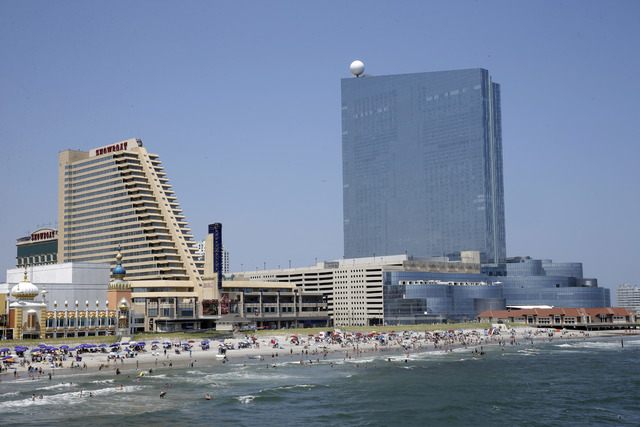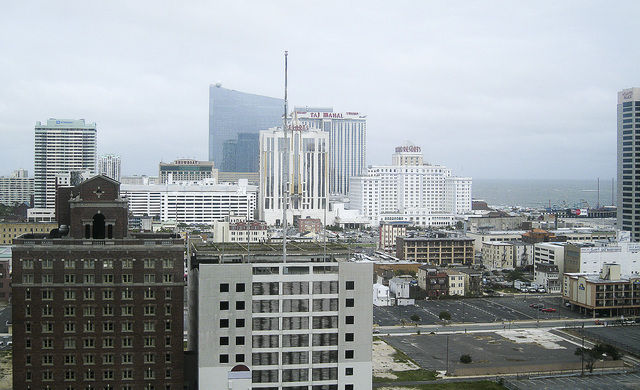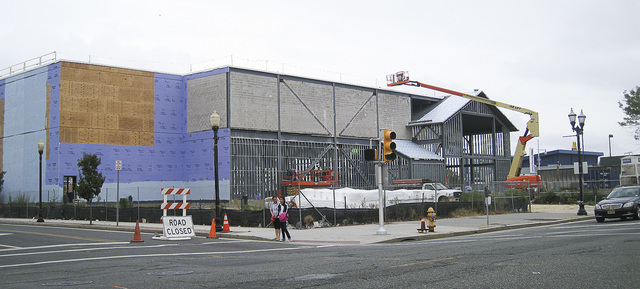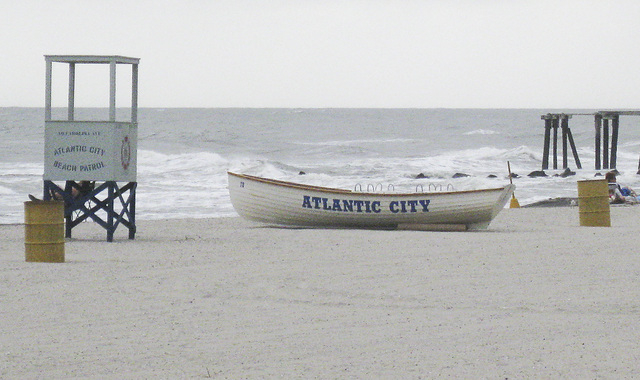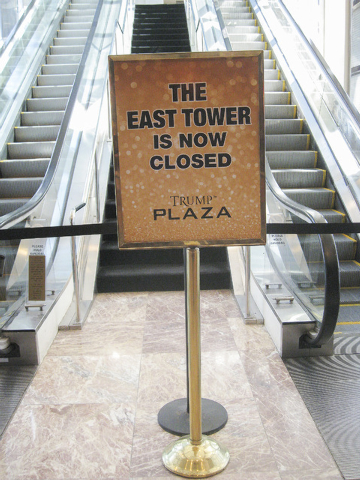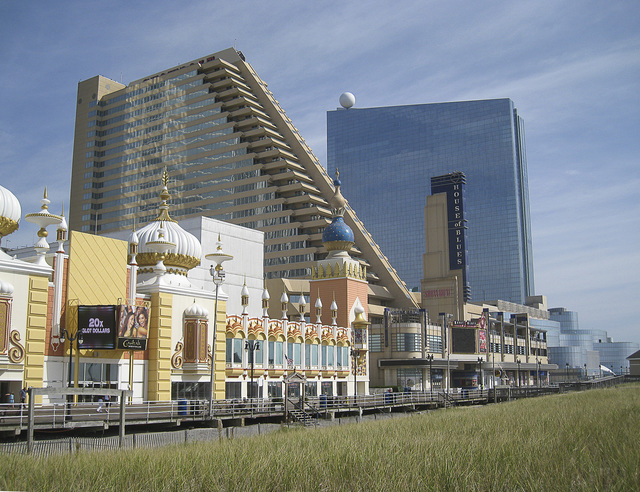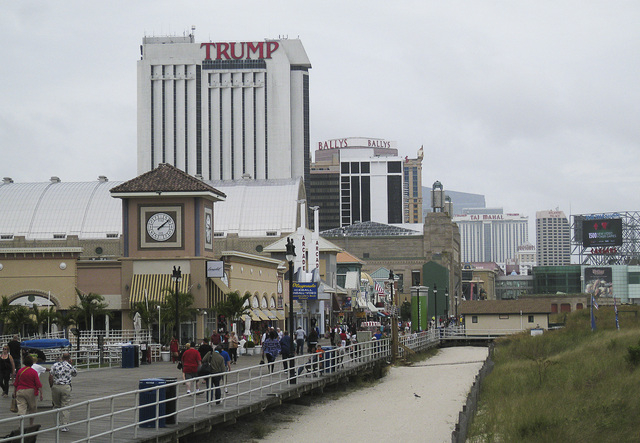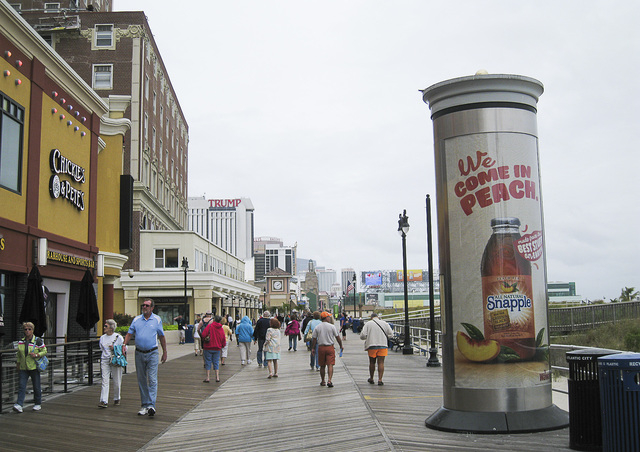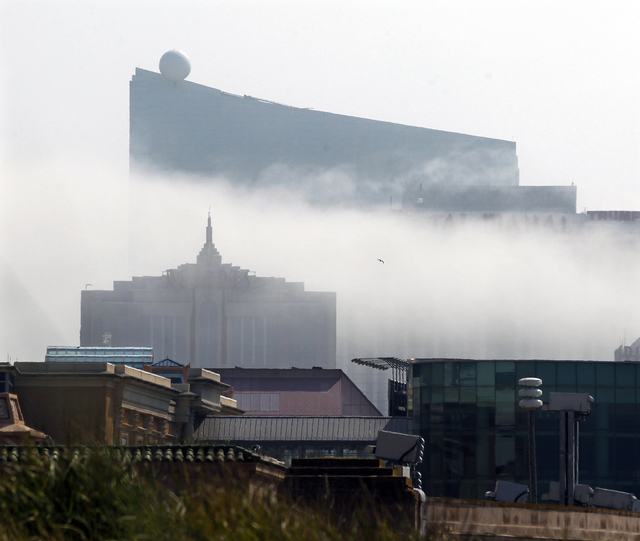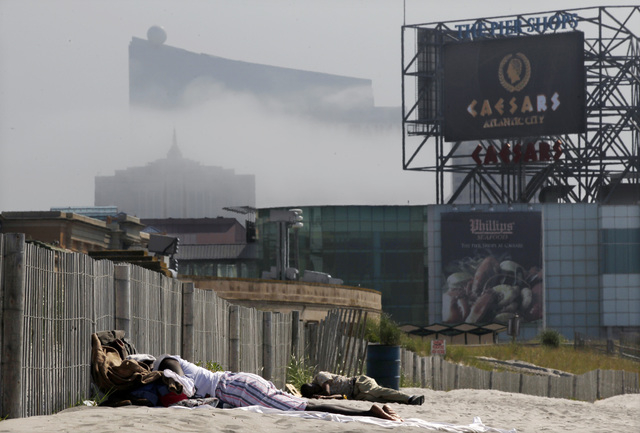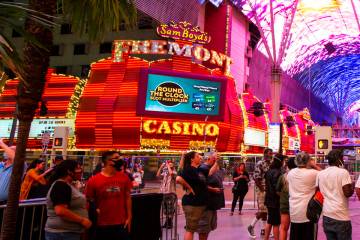Atlantic City looks to define its gaming future
ATLANTIC CITY
Four years ago, the obituaries for Resorts Atlantic City were being written.
The city’s oldest hotel-casino — the first U.S. gaming hall ever licensed outside of Nevada — was in disrepair. The aging resort was bleeding money. Management of the 1920s-era art deco building was troubled. Customers were fleeing to other Boardwalk properties.
No one envisioned that in September 2014 Resorts would be a survivor.
A third of the Boardwalk’s casino industry has closed in a span of nine months. The shutdowns eliminated 8,000 hospitality and gaming jobs, silenced more than 9,000 slot machines and removed from the market more than 5,000 hotel rooms and suites.
Last week’s closing of Trump Plaza — the fourth this year — is viewed as the end of the casino market-downsizing.
Many observers believe a fifth casino, Trump Taj Mahal, will remain open. The resort filed for Chapter 11 bankruptcy protection Sept. 9 and threatened to close in November unless it receives financial concessions from creditors and unions.
The casino closings were no surprise to Atlantic City leaders and gaming industry analysts.
Atlantic City’s gaming revenue has tumbled more than 60 percent since 2006. Business was lost to neighboring states that added casinos, including Pennsylvania, New York, Delaware and Maryland. The Great Recession also factored in the downturn, leaving casino customers with less money for entertainment.
“The inevitable supply contraction of Atlantic City is underway,” Deutsche Bank gaming analyst Andrew Zarnett told investors in a Sept. 12 research report. “When fewer people spend fewer dollars, properties close. As far as we are concerned, it is long overdue.”
Resorts President Mark Giannantonio, who has spent more than 30 years in the Atlantic City casino industry, said the East Coast gaming saturation of the past decade led to the downsizing.
“The market is so quickly correcting itself that it’s hard for people to comprehend,” Giannantonio said.
Resorts survived, he said, because new owners reinvested in the property.
The late Dennis Gomes and businessman Morris Bailey bought the casino for $31.5 million in 2010. Bailey brought in the Mohegan Indian Tribe to operate the casino. Mohegan, which also operates casinos in Connecticut and Pennsylvania, helped diversify Resorts’ customer base.
Bailey partnered with Jimmy Buffett’s Margaritaville company in 2013 to reposition some of the gaming floor and build a Landshark Bar &Grill on the beach adjacent to the property’s Boardwalk entrance.
Margaritaville helped attract a younger audience.
“Our customer demographic changed,” Giannantonio said.
Atlantic City Alliance President Elizabeth Cartmell said Resorts’ comeback is a case study for other hotel-casinos looking to get beyond the carnage of 2014.
Resorts brought in nongaming attractions and remodeled hotel rooms and public space.
The result was a profitable casino for the first time since the mid 2000s. In 2014, Resorts’ gaming revenue is up almost 4 percent for the first eight months of the year, including a 2.3 percent increase in August.
According to the Gaming Enforcement Division, Resorts had an operating profit of $1.9 million in the quarter that ended June 30, reversing a $1.3 million loss the previous year.
“Resorts was on the death list,” said Cartmell, whose agency was created in 2011 to market and promote the destination. “The shakeout was long expected. We knew it was going to come. We just didn’t know when and who. Now, we largely have the answer.”
MARKET NO. 3
Atlantic City is now considered the No. 3 casino market in the United States behind the Strip and all of Pennsylvania. In 2013, the city’s casinos produced $2.86 billion in gaming revenue, the least in 25 years. Through August, the market is down 6.3 percent.
The casino closings run counter to positive signs coming from Atlantic City.
Tourism leaders said hotels ran at better than 95 percent occupancy during the summer, helped by special events. Free outdoor concerts on a stage in front of Caesars Atlantic City by country music superstars Blake Shelton and Lady Antebellum packed the beach with more than 60,000 fans for each show.
“People actually had trouble booking rooms this summer,” Cartmell said.
Borgata President Tom Ballance called it a strange summer.
“The market had all this tough news, but we’re having a great summer,” Ballance said.
Nevertheless, visitation was down 2 percent, to 26.7 million in 2013, according to the Lloyd D. Levenson Institute of Gaming, Hospitality &Tourism at the Richard Stockton College of New Jersey. Atlantic City’s visitor numbers peaked at nearly 35 million in 2005 and have declined every year since.
Zarnett warned that Atlantic City is not yet out of danger.
New casinos in Philadelphia and Maryland will slice even further into Atlantic City’s gaming revenue stream by the end of the decade. One countermove would have Atlantic City reposition itself as a seaside destination with new nongaming attractions.
“We see declining revenues, fewer hotels and slot machines, and yes even fewer salt water taffy sales,” Zarnett said of the candy conceived here in 1883.
But no one is giving up. Atlantic City, observers said, is already on the path to becoming more than just gaming.
“We’re seeing those changes today,” said John Palmieri, executive director of the Casino Reinvestment Development Authority, which finances nongaming development for casinos and other businesses. The state agency is funded by a 1.25 percent gaming revenue tax.
“This is an evolutionary process,” Palmieri said. “The casinos are coming to us with more and more development ideas.”
He cites more than a dozen different projects funded by the authority this year that could push nongaming customer spending in Atlantic City to more than $1 billion annually.
Resorts Atlantic City used authority funding to help cover nongaming aspects of its $35 million Margaritaville expansion. Tropicana Atlantic City included authority money in financing a $25 million project that included new restaurants fronting the Boardwalk, including a branch of Chickie’s &Pete’s, a popular Philadelphia sports tavern.
Tropicana will receive $18.8 million to help with a $35 million renovation of 434 hotel rooms in one tower, add retail space and a health club, and spruce up a Boardwalk facade.
Those projects show promise in helping bring in tourists for experiences they can’t get at new casinos closer to home.
“On weekends, we’re packed, especially for football games,” Chickie’s &Pete’s general manager Steve Callendar said. “We get a lot of walk-in customers from the Boardwalk. “The restaurant has done well in the market.”
The Tropicana is on the Boardwalk’s south end, near the Atlantic Club, the first casino to close in February.
“The closings haven’t hurt us,” Callendar said. “We have steady customers coming from the casino.”
In July, Harrah’s Atlantic City opened a Martorano’s Italian restaurant. Harrah’s Regional President Rick Mazer said he met a couple from Philadelphia who drove 62 miles to the Atlantic City casino just to have dinner at Martorano’s, which started in south Philadelphia.
Meanwhile, an 86,000-square-foot Bass Pro Shops — New Jersey’s first — will open next spring near The Walk, an outdoor outlet shopping district between the Boardwalk and the Convention Center.
Bass Pro Shops received $12.3 million from the authority, and will feature an aquarium, boat showroom, restaurant, indoor firing range and a 170-space parking lot. An average Bass Pro Shops draws 1 million annual visitors, Cartmell said.
“There 70,000 licensed fishermen in New Jersey,” Cartmell said. “We believe this will draw from all over the state.”
Palmieri also touted a planned indoor public market near the Boardwalk area. The project is still in development.
“The good news is there is a lot of activity on the horizon,” he said.
SHIFTING FOCUS
Gaming leaders want Atlantic City to refocus efforts on the convention and trade show business. Several executives cited a study showing the market attracts roughly 2 percent of all East Coast corporate meetings and events, losing out to New York City, Philadelphia and other large cities.
That notion perplexes Borgata’s Ballance.
“In New York, you’re paying $800 a night for a hotel room,” Ballance said. “In Philadelphia, it’s $500 a night. Here, you would pay maybe $129 a night and have all these entertainment options. We’ve done an abysmal job in this area.”
Tourism leaders recently hired a new convention center head and increased sales staff to focus on generating more midweek business.
The reinvestment authority sank $45 million into a new Waterfront Conference Center at Harrah’s Atlantic City. The $125.8 million project, with 100,000 square feet of meeting space, is expected to draw more meetings to Atlantic City.
Mazer said the facility’s two new 50,000-square-foot ballrooms — each able to break into 27 smaller meeting rooms — are aimed at corporate meetings too small to need the 500,000-square-foot Atlantic City Convention Center.
“It’s the piece of the puzzle missing in this picture,” Mazer said.
Without downplaying the impact of casino job losses, state officials and business leaders acknowledge that a gaming downturn was inevitable as more gaming comes online in the Northeast.
“This is a natural evolution,” New Jersey Gov. Chris Christie said following a two-hour, 15-minute summit on Atlantic City.
“The fact of the matter is that gambling is real in over 40 states,” Christie said. “The need to diversify beyond a gambling hub is necessary. There is a commitment to build nongaming attractions. We need to broaden its appeal. Sixty-three percent of Northeast residents identify Atlantic City as a place to visit.”
Caesars offered jobs to more than 500 workers displaced by the Showboat’s closing, including positions at the company’s three remaining Atlantic City casinos.
Nongaming jobs are being created, however, in Atlantic City.
UNITE HERE President Bob McDevitt, whose Union Local 54 represents many displaced hotel and restaurant workers, said he’s hopeful the closed casinos will reopen, although many won’t have gaming.
“We know a lot of these jobs aren’t going to be coming back,” McDevitt said. “The people toll is a tough aspect. Many of these folks were in their positions for a long time.”
So what happens to the closed hotel-casinos?
That depends on whom you ask.
Mayor Don Guardian and others advocate demolishing the run-down Trump Plaza to better connect The Walk and the Boardwalk, offering more spots for shops and restaurants.
Also unclear is the fate of the 801-room Atlantic Club, owned by a Florida developer who also bought the historic Claridge from Casesars earlier this year for $12.5 million. The Claridge, a hotel annex to Bally’s Atlantic City since 2005, was renovated and reopened as a nongaming hotel.
Caesars closed the Showboat on Aug. 31 and wants to sell the building as a nongaming property.
The 1,400-room Revel, which closed Sept. 2, was in financial trouble from Day One. The building, the most expensive hotel-casino ever built in Atlantic City at $2.4 billion, is controlled by the bankruptcy court. An auction will be held Wednesday after a Florida developer offered $90 million cash for the closed facility.
“The market will determine the future of these buildings,” Palmieri said.
Contact reporter Howard Stutz at hstutz@reviewjournal.com or 702-477-3871. Follow @howardstutz on Twitter.
Instead of boom, a whimper from Internet gambling
ATLANTIC CITY — Internet gaming hasn’t provided the windfall New Jersey officials had hoped would come and that analysts had predicted.
Through August, online wagering revenue was $83.6 million for the six casinos operating the state’s websites, less than half once imagined for the market.
PokerStars could change the outlook.
The Isle of Man-based online gaming giant has a deal to operate online gaming with Resorts Atlantic City.
"We think PokerStars will help grow the market and provide New Jersey with the best product online," Resorts President Mark Giannantonio said.
PokerStars was bought this year by Amaya Gaming Group of Canada for $4.9 billion.
The website controls 54 percent of global online gaming traffic outside the United States and could be a boost to New Jersey.
However, casino operators want to keep PokerStars on the sidelines. The company operated illegally in the United States after the 2006 passage of the Unlawful Internet Gambling Enforcement Act. PokerStars paid a $731 million settlement to federal prosecutors two years ago to erase criminal and civil charges.
Borgata President Tom Ballance agreed that PokerStars would expand New Jersey’s online gaming market, where Borgata, which operates in New Jersey with Bwin.party, is market leader with 36.5 percent of all online revenue.
"PokerStars will spend a lot of money in advertising," Ballance said. "That helps all of us."
However, Ballance and other gaming leaders are concerned PokerStars will still be able to use its database of players captured after it was operating illegally.
New Jersey Division of Gaming Enforcement Director David Rebuck said the agency is investigating Amaya’s buyout of PokerStars and how the management of the business has been restructured.
"We know this is an issue of great importance to industry," Rebuck said. "(PokerStars) has been out of the U.S. for three-and-a-half years already. There is no debate on that."
HOWARD STUTZ/LAS VEGAS REVIEW-JOURNAL



